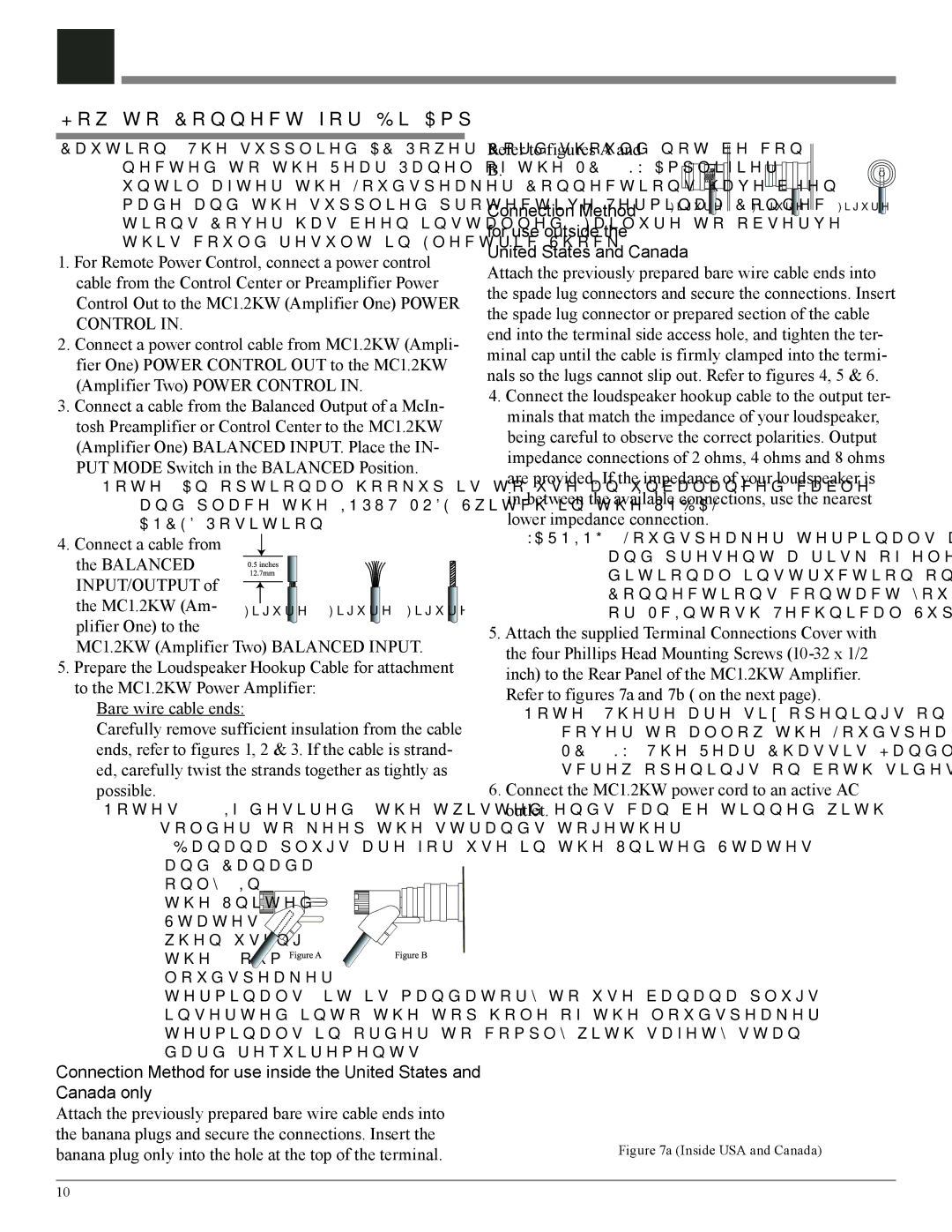MC1.2KW specifications
The McIntosh MC1.2KW is a powerful monoblock amplifier designed for audiophiles who demand top-tier performance and precision. With a robust power output of 1,200 watts into an 8-ohm load and a staggering 2,400 watts into a 4-ohm load, this amplifier is engineered to drive even the most demanding loudspeakers with ease. The MC1.2KW exhibits impressive dynamic range, making it an ideal choice for reproducing both subtle nuances and explosive crescendos in music.One of the standout features of the MC1.2KW is its use of McIntosh's advanced Autoformer technology. This transformer allows the amplifier to deliver full power regardless of the speaker impedance, which ensures that users can connect it to a wide range of speaker systems without sacrificing performance. This provides versatility and reliability, as it can effortlessly transition between different speaker loads.
Another key characteristic of the MC1.2KW is its unique Power Guard system. This technology continually monitors the audio signal and adjusts the output to protect both the amplifier and connected speakers from distortion and clipping. This protection processes help ensure that listeners enjoy an uncompromised audio experience, while also prolonging the lifespan of the equipment.
The MC1.2KW features a sleek and elegant design, complete with McIntosh's iconic glass front panel and illuminated logo. The distinctive blue watt meters not only add a touch of aesthetic appeal but also offer a visual representation of the amplifier's output, allowing users to monitor performance at a glance.
Additionally, the unit is equipped with a balanced input and a high-quality 12V trigger, allowing for seamless integration into any high-end audio system. The robust build quality, coupled with meticulous craftsmanship, ensures that the MC1.2KW can withstand the rigors of everyday use while delivering impeccable sound quality.
In conclusion, the McIntosh MC1.2KW monoblock amplifier merges cutting-edge technology with stunning design to provide audiophiles with an unparalleled listening experience. Its powerful output, versatility, and innovative features set it apart in the competitive world of high-fidelity audio. Whether for music enthusiasts or serious home theater setups, the MC1.2KW stands as a testament to McIntosh's dedication to superior sound reproduction.

